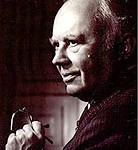
The picture of the American conservative moment that emerges from this book is one characterized by surprisingly deep fractures that, in many respects, have never been resolved. Some may be beyond resolution. This makes it all the more ironic that one of the most revealing aspects of Birzer’s book is the degree to which Kirk worked with and even promoted people with whom he had intellectual disagreements.
Traditionalists may be surprised, for example, to learn just how much Kirk admired Leo Strauss’s thinking. “Even as late as 1990,” Birzer writes, “on the eve of an implosion of even a semblance of unity within intellectual conservatism, Kirk continued to praise Strauss.” Kirk was particularly taken with Strauss’s conception of natural rights. Certainly, the two men disagreed in their interpretation of Burke, and Kirk strongly disapproved of some of Strauss’s followers. None of this, however, impaired what Birzer describes as the positive influence exerted by Strauss on Kirk’s thought.
Other friendships developed by Kirk with figures such as the sociologist Robert Nisbet, the novelist Flannery O’Connor, and the political philosopher Eric Voegelin were characterized by a similar pattern: affirmation of many points in common and recognition of a mutual seriousness of purpose, accompanied by clear but civil disagreement about other important issues.
Read “A Conservative’s Odyssey: Russell Kirk and Twentieth-Century American Conservatism” by Samuel Gregg at The Public Discourse.
Also see “Inside the Conservative Mind,” Religion & Liberty’s interview with Bradley Birzer in the Summer/Fall 2014 issue.

